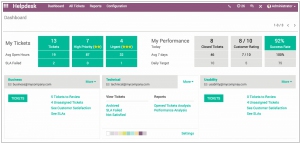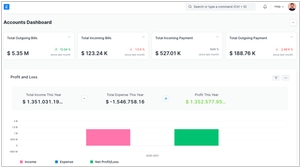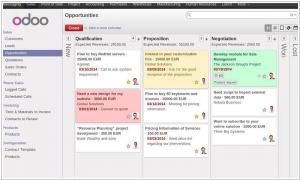ERPNext vs Odoo
June 13, 2023 | Author: Michael Stromann
ERPNext and Odoo are both popular open-source enterprise resource planning (ERP) systems, but they have distinct differences in their features, flexibility, and community support. ERPNext is known for its simplicity and user-friendly interface, offering a comprehensive suite of modules for managing various aspects of a business, including accounting, inventory, sales, purchasing, and HR. It focuses on providing out-of-the-box functionality and ease of use for small and medium-sized businesses.
Odoo, on the other hand, is a more feature-rich and customizable ERP platform with a modular structure. It offers a wide range of modules that cover various business functions, including CRM, e-commerce, manufacturing, project management, and more. Odoo provides extensive customization options, allowing businesses to tailor the system to their specific needs. It has a large and active community that contributes to the development of additional modules and provides support.
See also: Top 10 Online ERP software
Odoo, on the other hand, is a more feature-rich and customizable ERP platform with a modular structure. It offers a wide range of modules that cover various business functions, including CRM, e-commerce, manufacturing, project management, and more. Odoo provides extensive customization options, allowing businesses to tailor the system to their specific needs. It has a large and active community that contributes to the development of additional modules and provides support.
See also: Top 10 Online ERP software
ERPNext vs Odoo in our news:
2019. Odoo grabs $90M to sell more SMEs on its business app suite

Belgium-based Odoo, an all-in-one business software provider, has raised $90 million. Odoo offers both an open source version and subscription-based enterprise software and SaaS solutions. Since its establishment in 2005, the company has achieved significant profitability and sustained 60% annual growth. Odoo primarily focuses on serving the SME business apps market, competing with major players such as Oracle, SAP, and Zoho. Through its Enterprise platform, Odoo offers around 30 applications, including ERP, accounting, stock management, manufacturing, CRM, project management, marketing, human resources, website, eCommerce, and point-of-sale apps. Additionally, a vibrant community of over 20,000 active members has contributed over 16,000 apps to the open source version of Odoo's software, catering to a wide range of business requirements.




